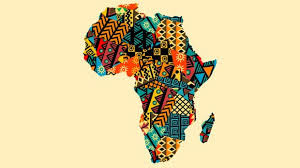
As the world grapples with climate change, economic disparities and social inequalities, Africa stands at crossroads. The continent, rich in resources and cultural diversity, faces unique sustainability challenges—from deforestation and water scarcity to youth unemployment and infrastructure. Yet amidst these challenges, hope emerges through initiatives like United People Global (UPG), which empowers individuals and communities to take action. This article explores how UPG’s mission aligns with Africa’s sustainability goals, with a special focus on Zimbabwe, South Africa and Zambia — three nations striving for a greener, more equitable future.
With Africa’s sustainability journey being characterised by both adversity and resilience, the continent is disproportionately affected by climate change, despite contributing minimally to global emissions. Drought,floods,and soil degradation threaten food security, while rapid urbanisation strain resources. However, Africa also boasts immense potential: a youthful population, vast renewable resources, and a growing spirit of innovation.
The United Nations Sustainable Development Goals (SDG’s) provide a roadmap for addressing these challenges.UPG’s Four Pillars — awareness, belief, collaboration and community — resonate deeply in Africa, where collective actions and local solutions are key to progress.
Zimbabwe: Reviving land and livelihoods
Awareness—Organisations like the Environmental Management Agency (EMA), work to educate communities about sustainable farming practices. For instance, permaculture projects in rural areas teach farmers to restore soil health. Reducing reliance on chemical fertilisers. MA supports the implementation of climate smart agriculture which aims to build ecosystems and community resilience in the face of climate change. This includes strategies like fodder management, water harvesting and biogas production.
Belief — Youth led initiatives, such as the JCI Capital Green My Zimbabwe campaign, which I initiated around 2019 and other related environmental campaigns, inspire young Zimbabweans to take ownership of their environments.
Collaborations — Zimbabwe’s collective farming cooperatives are pooling resources to adopt solar powered irrigation systems, ensuring water efficiency in drought-prone regions.
Community — The sense of unity is palpable in cities like Bulawayo and partly Harare,where,some neighbourhood clean-up campaigns and recycling drives foster a shared commitment to sustainability.
- Veld fire management strategies for 2022
- Stop harassing media for reporting truth
- Veld fire management strategies for 2022
- News in depth: Mnangagwa’s push for $12 billion mining industry imperils communities
Keep Reading
South Africa: Bridging inequalities through green innovation
South Africa, the continent’s most industrialised nation, faces stark contrasts. While cities like Cape Town and Johannesburg thrive, townships and rural areas struggle with poverty and pollution. UPG’s framework is helping to bridge these gaps.
Awareness — Capetowns 2018 water crisis was a wakeup call. UPG — supported workshops now teach residents rainwater harvesting and conservation techniques, turning scarcity into a cession of resilience.
Belief — In Job’urg, social enterprises like “Green Cape” empower women to manufacture ecofriendly products from reusable sanitary pads to solar lanterns. These initiatives align with UPG’s vision of individual agency.
Collaboration — South Africa’s renewable energy sector exemplifies UPG’s collaborative spirit. Projects like Solar Turtles, Mobile Solar Kiosks bring energy to off grid schools, thanks to partnerships between NGO’s, businesses and the government.
Community — Township gardens in Durban are more than just food sources, they are hubs of social cohesion. UPG’s community pillars thrive here, as residents share skills and stories while tending to their crops.
Zambia: Protecting nature, empowering people
Awareness—Zambia’s lush forests and rivers are vital to its people and biodiversity yet deforestation and climate change loom large. Zambia is thus aligning with UPG goals and safeguarding its natural heritage in the process.
Belief — Young Zambians are leading reforestation efforts. The Zambia Youth Environment Network, plant thousands of trees annually proving. That small actions can yield big impact.
Collaboration — Launched in 2022, the previously USAID-funded Kafue River Conservative Project ,implemented by the Nature Conservancy, brings together public, private and civil society actors with local communities to address biodiversity threats in and around the Kafue National Park. These may include fishermen, tourism operators and NGOs to protect waterways. By promoting ecotourism, it also creates jobs—a win-win for people and the planet.
Community—Village led conservative groups, such as those in South Luangwa align with UPG’s community pillars.
By involving locals in anti-poaching patrols, they can ensure wildlife and livelihood co-exist.
The road ahead: UPG’s role in Africa’s sustainability
Zimbabwe, South Africa and Zambia are microcosms of broader sustainability narrative. Each country’s challenges are unique, but the solutions share common threads — education,innovation,and unity. As Africa strides towards target year for SDG’s, the lessons from these countries are clear.
Local leadership is key as grassroot movements drive lasting change
Collaboration crosses the border and Zambia’s conservation models can inspire Zimbabwe, SA’s Greentech can benefit the continent.
Every action counts from planting trees to advocating for policy reforms, each effort contributes to a sustainable future.
Conclusion
United People’s global mission—"nothing is too small; nothing is too big” mantra rings true across Africa. In Zimbabwe, SA and Zambia, ordinary citizens are achieving extraordinary feats, proving that sustainability is not just a goal but a way of life. Through awareness, belief and collaboration, Africa is writing and rewriting its own story of resilience and hope.
- Fungayi Antony Sox is a YALI RLC SA Alumnus, communications and publishing strategist based in Harare, Zimbabwe.For Feedback contact him on +263 776 030 949 or [email protected]











